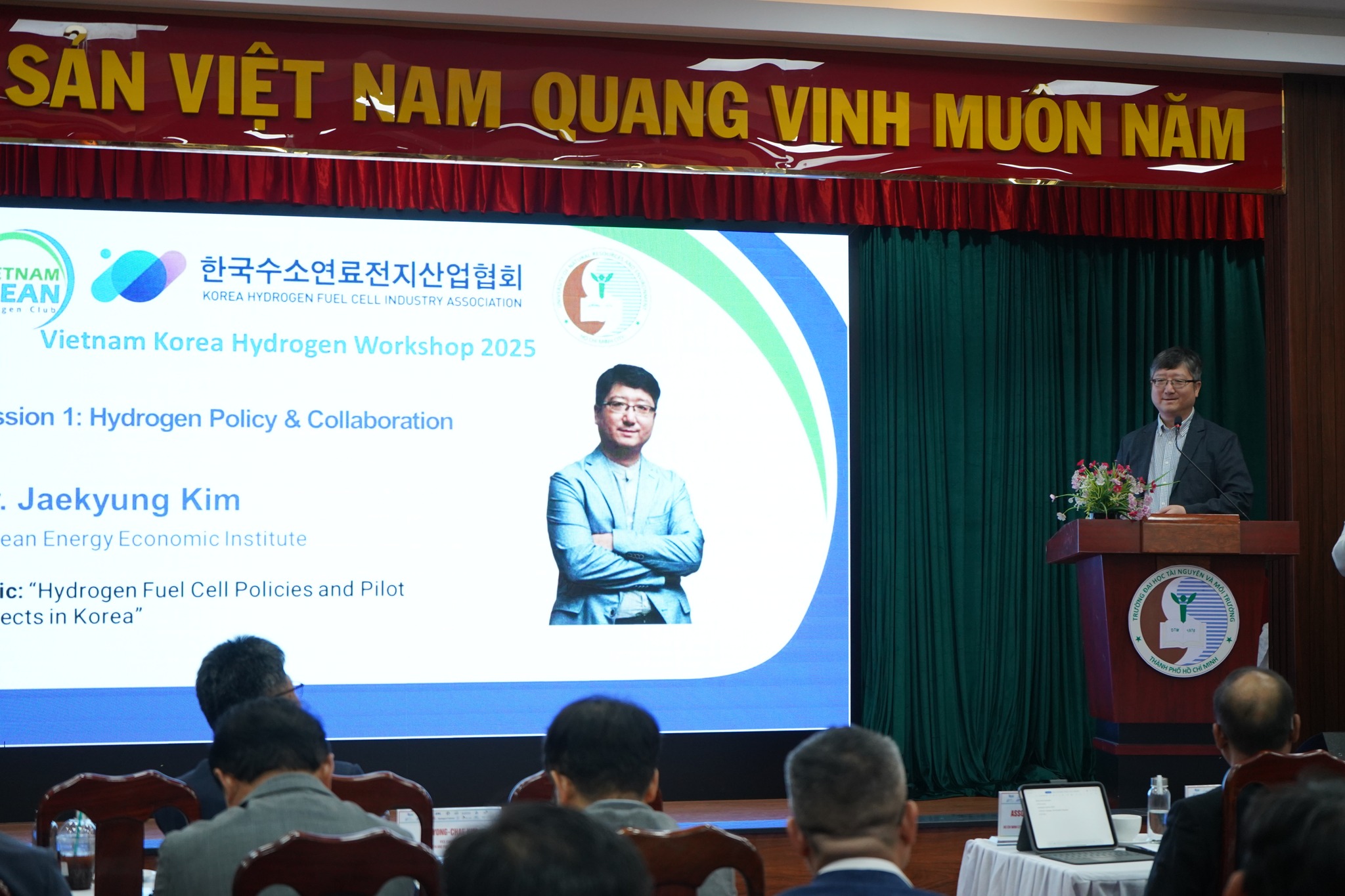South Korea accelerates hydrogen fuel cell policies and pilot projects
Ho Chi Minh City, July 16, 2025

At the Vietnam–Korea Hydrogen Workshop held in Ho Chi Minh City on July 16, 2025, Dr. Jae-Kyung Kim, Senior Research Fellow at the Korea Energy Economics Institute (KEEI), delivered a comprehensive presentation on South Korea’s national policies and pilot initiatives related to hydrogen fuel cells. His talk provided a detailed look at how the country is building a modern hydrogen economy in pursuit of carbon neutrality by 2050.
According to Dr. Kim, the South Korean government has implemented an ambitious policy roadmap aimed at making hydrogen a core pillar of its national energy strategy. Since 2021, the country has enacted its first Basic Plan for Implementing the Hydrogen Economy, which provides a legal framework for clean hydrogen development across the entire value chain—from production and transport to storage and utilization. Crucially, the Hydrogen Act has been amended to legalize hydrogen-based power generation and introduce the Clean Hydrogen Power Obligation System (CHPS), mandating power producers to incorporate clean hydrogen into their energy mix.
A key innovation is the establishment of a four-tier certification system for clean hydrogen, classified based on lifecycle greenhouse gas emissions. To support commercial viability, the government has adopted a Contract-for-Difference (CfD) mechanism, compensating producers for the cost gap between hydrogen-generated power and the market price of electricity.
Alongside policy reform, South Korea has launched a number of pioneering demonstration projects. On Jeju Island, the Haengwon Water Electrolysis Complex is operational with an initial capacity of 3.3 MW powered by wind energy, soon expanding to 12.5 MW. The hydrogen produced supports the Hamdeok Green Hydrogen Refueling Station, which services hydrogen buses and passenger vehicles as part of the province’s green mobility program.
Further inland, Hydrogen Pilot Cities like Ulsan and Ansan are deploying residential fuel cells, hydrogen-powered buses and cars, and building dedicated hydrogen pipeline networks. In parallel, the government is promoting “energy superstations”—urban clean energy hubs that combine fuel cells, EV charging, solar power, and energy storage systems, transforming traditional gas stations into multi-functional infrastructure.
Strategically, South Korea aims to supply 27.9 million tons of hydrogen annually by 2050, entirely from clean sources, with over 80% imported from regions like Australia, the Middle East, and North Africa. By 2030, the majority of hydrogen demand is expected to come from power generation and transportation sectors. To enable market-driven growth, the country has introduced bidding mechanisms for hydrogen and clean hydrogen power, encouraging private investment in fuel cell plants, hydrogen turbines, and ammonia co-firing technologies.
Dr. Kim’s presentation underscored South Korea’s integrated approach—not only advancing hydrogen technology, but also creating a functioning, scalable hydrogen market. This strategy offers a valuable model for Southeast Asian countries, including Vietnam, to consider in their own paths toward decarbonization and green economic transformation.





